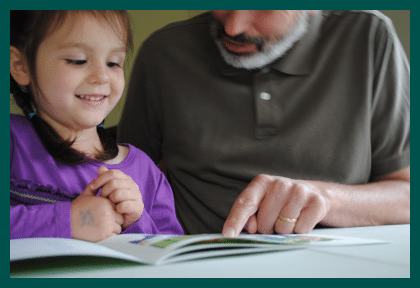Stage 1 – Initial Decoding
 The majority of students who experience difficulty acquiring decoding skills do so not because of visual perceptual problems, as commonly believed in the past, but because of problems with the phonological aspects of language.
The majority of students who experience difficulty acquiring decoding skills do so not because of visual perceptual problems, as commonly believed in the past, but because of problems with the phonological aspects of language.
An understanding of the phonetic structure of the English language is a must if a poor reader is to become a good reader.
Stage 2 – Fluency
It is only when the decoding process becomes automatic, that is, both accurate and rapid, that attention is freed for higher level reading comprehension skills.
Without rapid word recognition one cannot go on to stage 3
Stage 3 – Reading for Meaning
Once reading becomes both accurate and fluent, the task of reading becomes one of understanding the content. It is during this stage that students expand their knowledge base.
Students acquire new knowledge when they comprehend the text. Comprehension increases the knowledge base.
Students who are reading below their grade level lack significantly in their knowledge base.
 Stage 4 – Relationships and Viewpoints
Stage 4 – Relationships and Viewpoints
In stage 4 students are expected to read more complex material from various sources. Effective reading is critical to success.
A child that has difficulty in reading falls further behind in high school.
Stage 5 – Synthesis
Ideally, this is the type of intellectual pursuit that occurs at the college level. The reader synthesizes the information from a variety of sources to form hypotheses. Formal reading instruction does not accompany stage 5 reading. Stage 5 reading emerges as a result of intensive study in a content area.
Academic Associates Reading Clinic
Tutors in Reading
Contact us at 503 328 9500
